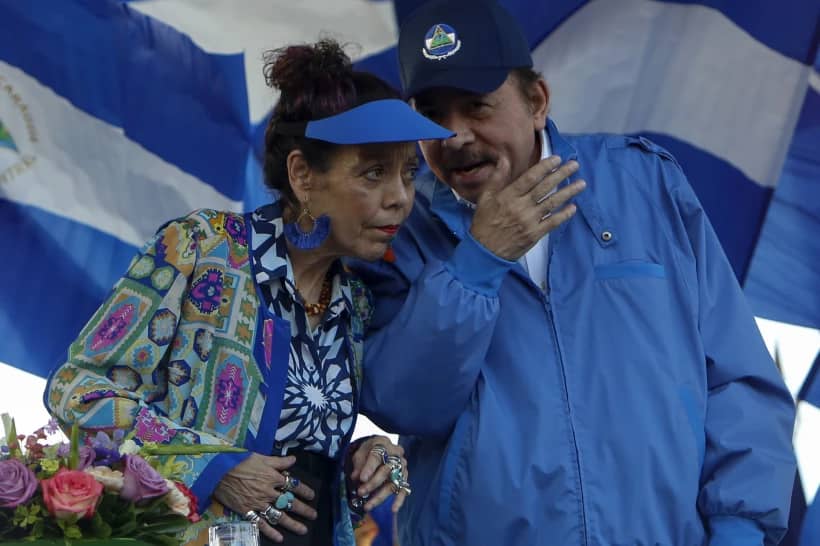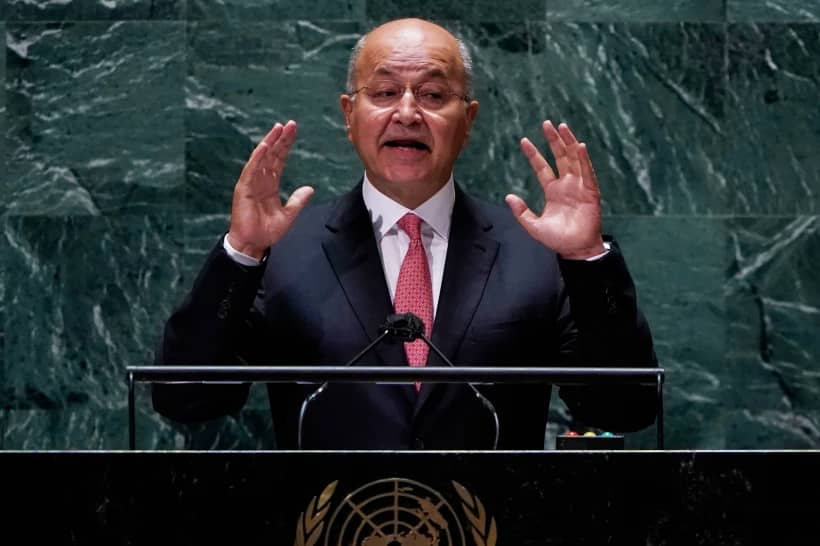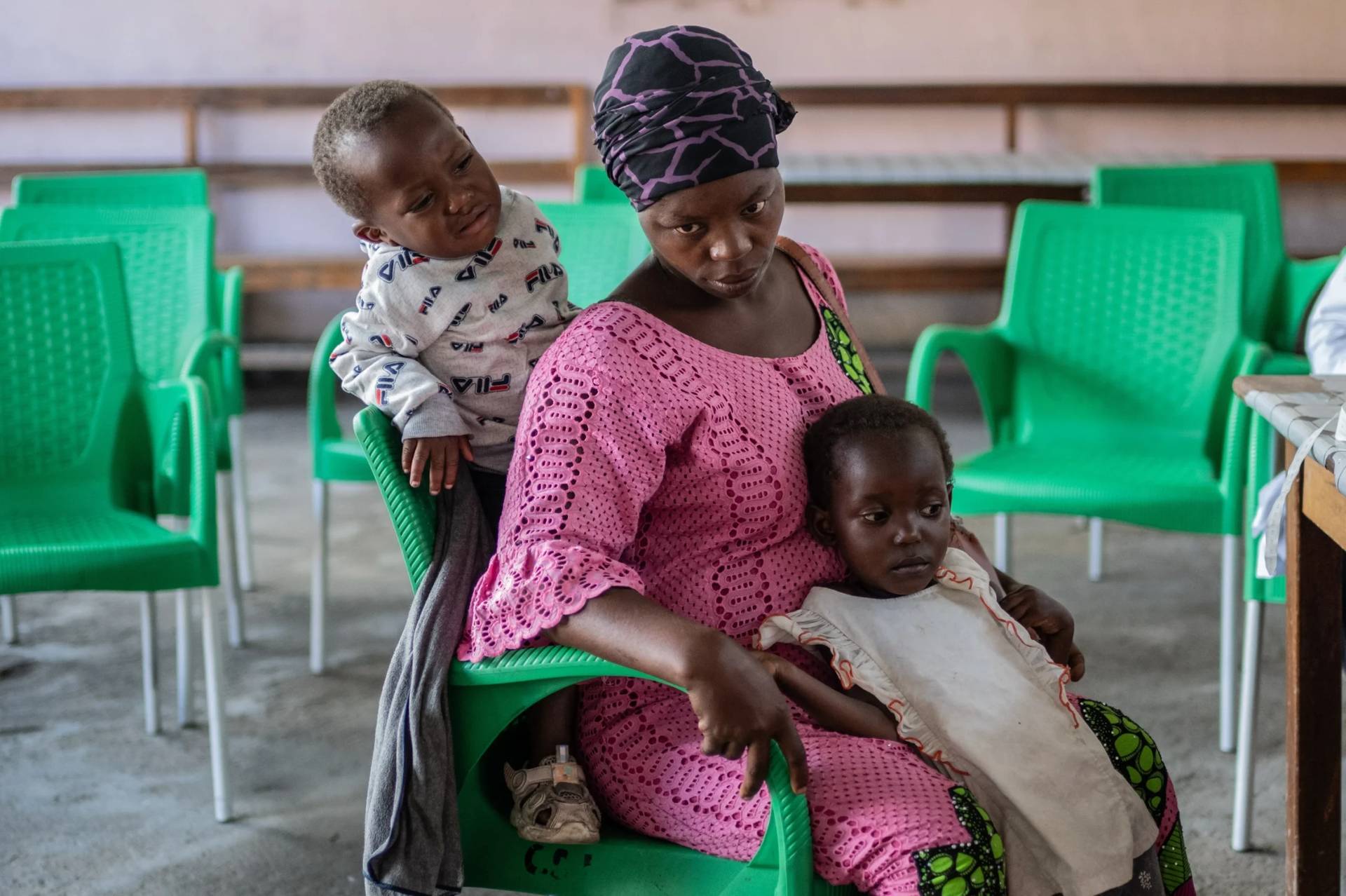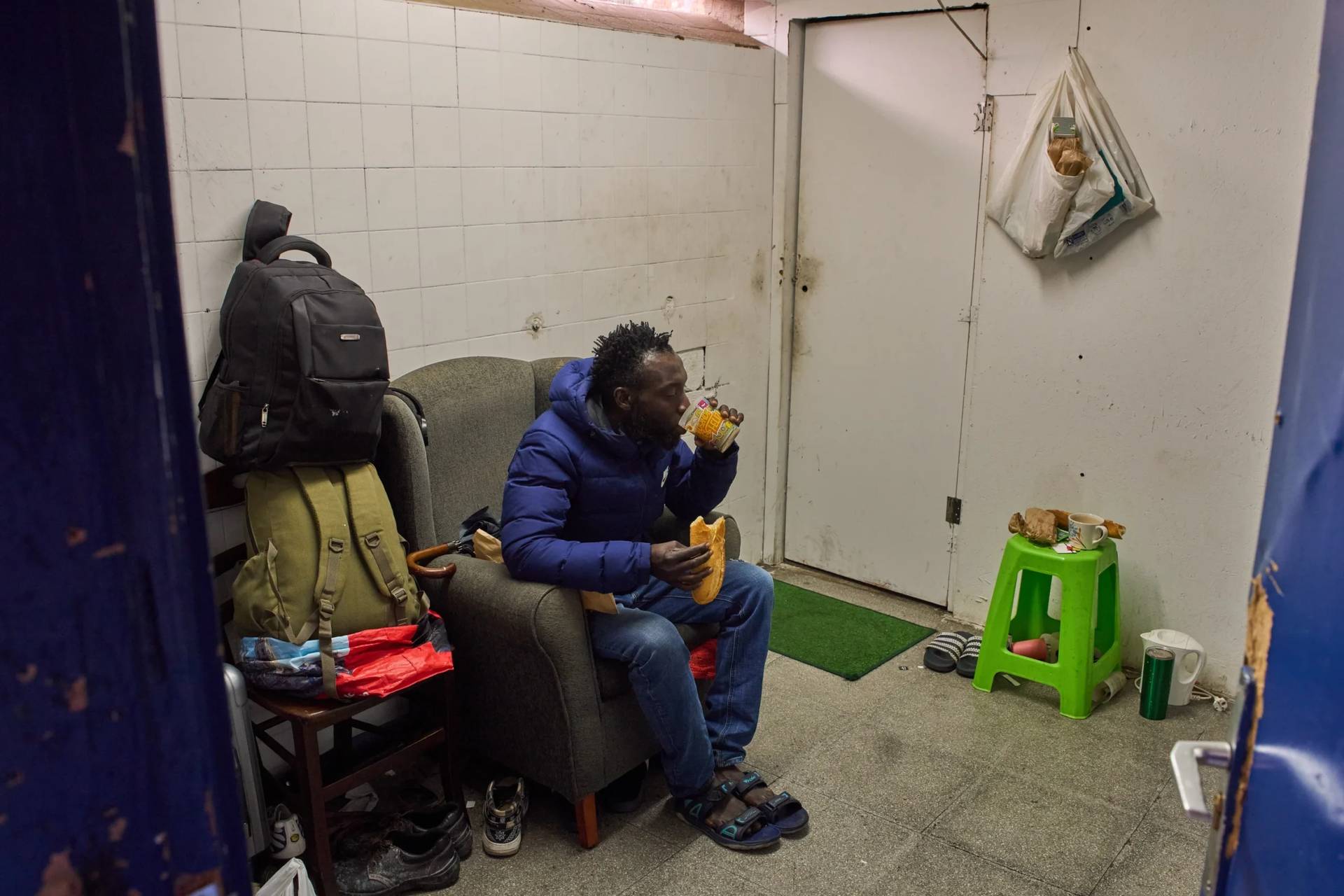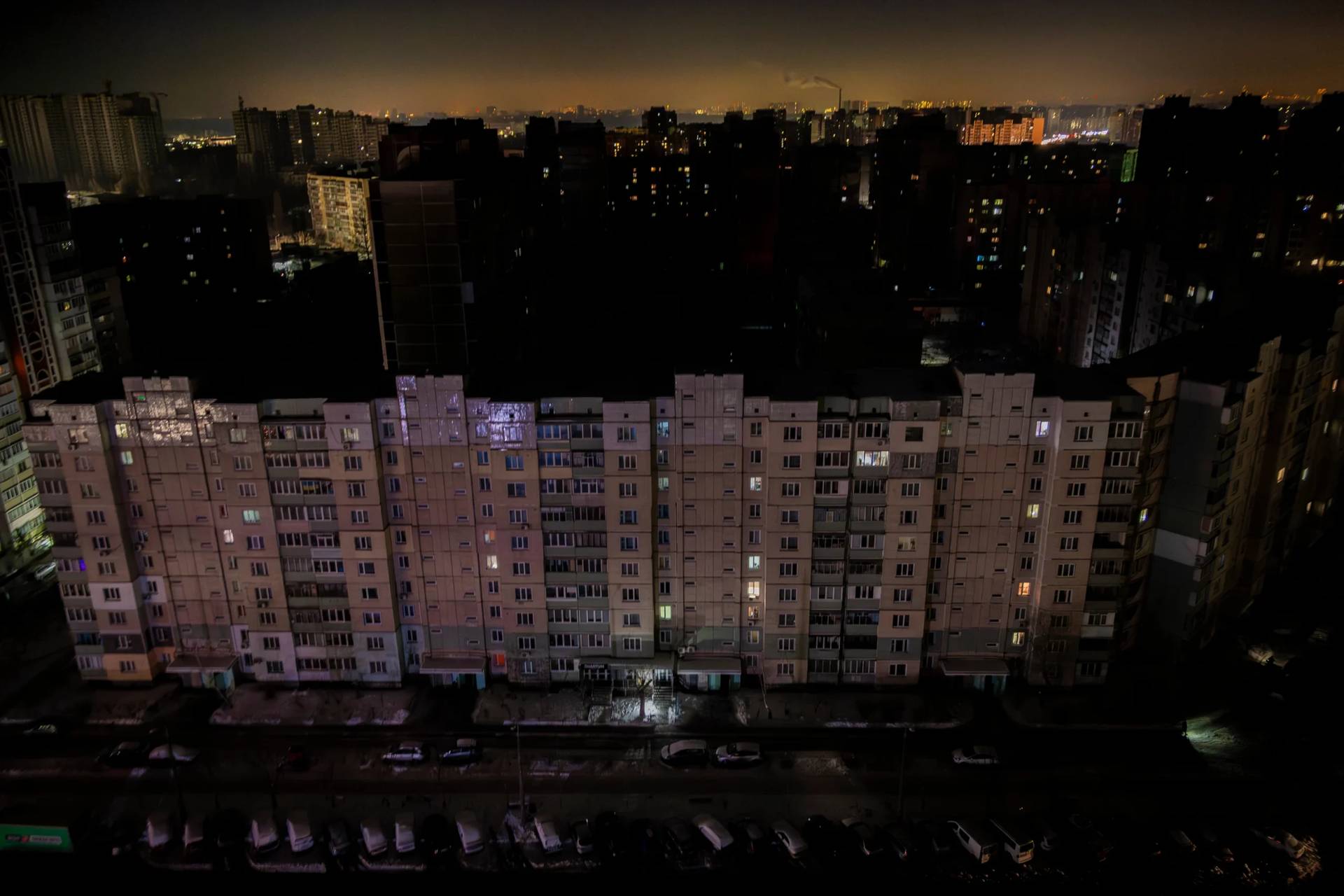ROME – On the second anniversary of Russia’s full-scale invasion of Ukraine and the war it sparked, Church leaders on the ground and in the Vatican have lamented the ongoing human and social toll, and have called for peace and an end to the global arms trade.
Since Russia invaded Ukraine on Feb. 24, 2022, some 10,500 civilians have been killed, including nearly 600 children, and around 20,000 others have been injured as vast swaths of major cities are destroyed by bomb and missile attacks, according to official estimates.
In total, some six million people have fled Ukraine, mostly women and children, while the men have stayed to fight on the front lines. While some families have returned, most are living abroad as refugees, hosted by private families or various charitable organizations.
Polish Cardinal Konrad Krajewski wrote a reflection on the war in Ukraine for Vatican News, the Vatican’s state-run information platform, for the second anniversary of Russia’s invasion, saying he wears a pin with the Ukrainian flag every day, and for two years “I have felt Ukrainian, and I suffer with them.”
Krajewski, the pope’s almoner, has led several charitable missions to Ukraine, making seven trips to deliver 240 trucks of aid over the past two years.
He said he pray for peace in Ukraine every day at Mass, and that for two years he has been praying specifically for Ukrainian President Volodymyr Zelenskyy and Russian President Vladimir Putin, as well as their top ministers, “to sit around a table.”
“It would help save human lives. Until they do, the trail of deaths will continue,” he said.
In his seven trips to Ukraine, Krajewski said he has seen “what should never happen: a man killing another man and a brother killing his brother.”
“The war seems to be triggered by revenge against a people who have the right to live in peace,” he said, saying he has seen great tragedy, but also great solidarity, as people give time and countless resources to help the millions who are displaced or in need.
He echoed Pope Francis’s condemnation of the global arms trade, saying, “all states produce weapons, sell them, and earn a lot. And it is equally true that almost no one talks about peace, except the Holy Father. They only repeat the phrase: ‘whoever wants peace must prepare for war.’”
Peace, Krajewski said, begins with mercy, when one experiences forgiveness and is then able to forgive others.
“Mercy is the second name of God, the first is love,” he said, saying peace is more than just a ceasefire or a truce, but implies “covering oneself with mercy, that is, forgiving and asking for forgiveness.”
Krajewski said the Ukrainian Greek Catholic Basilica of Saint Sophia in Rome will send out another truck full of humanitarian aid on Feb. 24, to mark the second anniversary of Russia’s invasion, offering “help for people who are exhausted by war, but not disheartened and convinced that peace is still possible.”
Similarly, Major Archbishop Sviatoslav Shevchuk, head of the Ukrainian Greek Catholic Church, gave a lengthy interview to Vatican News for the second anniversary of the war, speaking about the human cost and the need maintain hope while praying for peace.
“My first prayer in the morning when I wake up is a prayer of thanksgiving, because when you wake up alive you already have a good reason to thank the Lord,” he said.
Shevchuk said the war did not begin two years ago, but has been raging for 10 years, since Russia annexed the Crimean Peninsula and invaded the eastern Ukrainian cities of Luhansk and Donetsk in 2014.
Yet with war raging throughout the country now following Russia’s 2022 full-scale invasion, the church, he said, has been on the front lines navigating the human and social fallout of the war, developing a “particular type of pastoral care that I call a ‘pastoral care of mourning.’”
“We must accompany the people who cry, who suffer, who grieve the loss of their loved ones, their home, their world. It is a challenge because it is very easy to be pastors of happy people,” he said.
In normal times, western culture today needs a “pastoral care of pleasure” or “of comfort,” he said, saying this is a pastoral care specifically tailored for the consumerist world, which warns people against “this culture of waste that seeks ever more intense pleasure with less responsibility.”
However, in the context of war, the challenge is different, he said, saying, “we live the tragedy of the destruction of our country, of our cities every day, every day we face death, and unfortunately, we still don’t know when all this is going to end.”
This uncertainty causes suffering and makes many people feel powerless, Shevchuk said, saying “This pastoral care of mourning is a challenge, but it is also a pastoral care of hope, because we see that the Christian faith calls us to bring the hope of Resurrection in the midst of people grieving their losses.”
Shevchuk stressed the importance of the sacraments in terms of finding strength and the ability to move forward, saying Mass and Confession are especially important.
“We live in constant danger of dying at any moment. For example, I don’t know whether I will still be alive in an hours’ time: this is our reality. Therefore, we must always be ready to die and to present ourselves before the Lord,” he said.
Despite the immense suffering people are living, Shevchuk said they still have hope, which said is “not an empty feeling, blindly trusting in what you do not know,” but is rather “the life of the Risen One: we will certainly rise again.”
“Christian hope is a virtue that involves the will, your way of thinking, your reason, and your feelings…we have a Christian hope against human despair. Therefore, the Christian eye can see in these conditions a light of faith that perhaps non-believers cannot perceive,” he said.
Noting that in February the synod of Greek Catholic bishops in Ukraine convened, highlighting the pastoral care of families as an urgent priority.
Shevchuk noted that many families have lost loved ones, while others are separated, and still others are coping with caring for a loved one who has been wounded or maimed.
“How can you offer spiritual accompaniment to a 23-year-old woman who has lost her arms? It is truly a great challenge,” he said, noting that many relatives of injured people requiring special care can no longer afford basic necessities.
Nearly 200,000 people of all ages have been injured, including around 50,000 who have lost their legs or arms, he said, saying the physical healing is a challenge, but they also need psychological healing and close spiritual accompaniment.
Other families live in anxiety over loved ones who are prisoners or who are missing, he said, saying official estimates put the number of missing at 35,000, leaving families in limbo, which “becomes torture,” while others struggle to know when imprisoned relatives will be released.
Shevchuk said that every parish he visits presents him with “endless lists” of people who are prisoners of war, and that he “relentlessly” collects these names and sends them to Pope Francis, as the Vatican consistently assists in negotiation prisoner exchanges, and voiced gratitude to the pope for his “commitment to the release of prisoners of war.”
The impact of war on children is also a major concern, he said, saying nearly 600 children have been killed in the war and some 1,224 have been injured to varying degrees, while thousands of others, mostly from occupied cities, have been forcibly deported to Russia.
Ukrainian officials have identified 20,000 deported children, while Russia claims the number is closer to 700,000, Shevchuk said, noting that as of Jan. 24, only 388 had been returned, calling the situation a “humanitarian disaster.”
“We must give voice to these voiceless children, help parents find their children, and also accompany them,” he said, and thanked the various actors, including Italian Cardinal Matteo Zuppi of Bologna, the pope’s personal peace envoy to Ukraine, for their efforts in facilitating the return of Ukrainian children.
These children, Shevchuk said, require special care, “because in their young age they have experienced unimaginable human cruelty and some of them have been sexually abused. This is a cry of pain from Ukraine that the whole world must be aware of and listen to.”
Asked what message he wanted to send to Catholics around the world, Shevchuk said everything must be done “to restrain the aggressor,” and asked those in Europe and beyond “to understand that the war in Ukraine is not just a ‘Ukrainian war’… it is a reality that is invading the world, like a volcano erupting in Ukrainian territory, but its smoke and lava extend beyond.”
“This war will eventually affect everyone, not just the soldier on the front lines and their family,” he said, asking for solidarity and for the world not to forget about Ukraine.
“If we are forgotten and abandoned, this earthquake that we are experiencing in Ukraine today will shake the entire world. Do not forget Ukraine; do not abandon us in our mourning and pain,” he said.
Follow Elise Ann Allen on X: @eliseannallen








